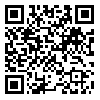Volume 33, Issue 2 (Spring 2025)
Avicenna J Nurs Midwifery Care 2025, 33(2): 117-127 |
Back to browse issues page
Ethics code: IR.UMSHA.REC.1403.090
Clinical trials code: IRCT20240611062088N1
Download citation:
BibTeX | RIS | EndNote | Medlars | ProCite | Reference Manager | RefWorks
Send citation to:



BibTeX | RIS | EndNote | Medlars | ProCite | Reference Manager | RefWorks
Send citation to:
Sharifi Kelarijani A, Afshari A, Doosti-Irani A, Hosseini S K, Azizi A. The Impact of Peer-based Virtual Education on Cardiac Self-efficacy and Self-care in Patients with Heart Failure: A Randomized Clinical Trial. Avicenna J Nurs Midwifery Care 2025; 33 (2) :117-127
URL: http://nmj.umsha.ac.ir/article-1-3099-en.html
URL: http://nmj.umsha.ac.ir/article-1-3099-en.html
Amirhosein Sharifi Kelarijani1 

 , Ali Afshari2
, Ali Afshari2 
 , Amin Doosti-Irani3
, Amin Doosti-Irani3 
 , Seyed Kianoosh Hosseini4
, Seyed Kianoosh Hosseini4 
 , Azim Azizi *5
, Azim Azizi *5 




 , Ali Afshari2
, Ali Afshari2 
 , Amin Doosti-Irani3
, Amin Doosti-Irani3 
 , Seyed Kianoosh Hosseini4
, Seyed Kianoosh Hosseini4 
 , Azim Azizi *5
, Azim Azizi *5 


1- Department of Medical Surgical Nursing, School of Nursing and Midwifery, Hamadan University of Medical Sciences, Hamadan, Iran & Student Research Committee, Hamadan University of Medical Sciences, Hamadan, Iran
2- Department of Medical Surgical Nursing, School of Nursing and Midwifery, Hamadan University of Medical Sciences, Hamadan, Iran & Chronic Diseases (Home Care) Research Center, Institute of Cancer, Hamadan University of Medical Sciences, Hamadan, Iran
3- Department of Epidemiology, School of Public Health, Hamadan University of Medical Sciences, Hamadan, Iran
4- Clinical Research Development Unit of Farshchian Hospital, Hamadan University of Medical Sciences, Hamadan, Iran
5- Department of Medical Surgical Nursing, School of Nursing and Midwifery, Hamadan University of Medical Sciences, Hamadan, Iran & Chronic Diseases (Home Care) Research Center, Institute of Cancer, Hamadan University of Medical Sciences, Hamadan, Iran ,Azimazizi1360@gmail.com
2- Department of Medical Surgical Nursing, School of Nursing and Midwifery, Hamadan University of Medical Sciences, Hamadan, Iran & Chronic Diseases (Home Care) Research Center, Institute of Cancer, Hamadan University of Medical Sciences, Hamadan, Iran
3- Department of Epidemiology, School of Public Health, Hamadan University of Medical Sciences, Hamadan, Iran
4- Clinical Research Development Unit of Farshchian Hospital, Hamadan University of Medical Sciences, Hamadan, Iran
5- Department of Medical Surgical Nursing, School of Nursing and Midwifery, Hamadan University of Medical Sciences, Hamadan, Iran & Chronic Diseases (Home Care) Research Center, Institute of Cancer, Hamadan University of Medical Sciences, Hamadan, Iran ,
Abstract: (1551 Views)
Background and Objective: Heart failure is one of the most common chronic diseases that requires proper management, which is dependent on patients' self-efficacy and self-care. One important way to promote self-care and self-efficacy is to educate patients and provide them with access to health information. This study aimed to determine the effect of peer-based virtual education on cardiac self-efficacy and self-care in patients with heart failure.
Materials and Methods: This two-group clinical trial was conducted with the participation of 74 patients with heart failure at Farshchian Heart Center in Hamadan, Iran. The samples were selected through convenience sampling and randomly assigned to control and peer education groups. The demographic information questionnaire, self-care questionnaire for heart failure patients, and cardiac self-efficacy questionnaire were completed as self-reports both before and one month after the intervention ended. The control group received only routine education, while the peer education group received educational videos recorded by a peer in a virtual space over a month. They had two training sessions per week, each lasting 20 to 30 minutes, for a total of 8 sessions. The normality of the data was assessed using the Kolmogorov-Smirnov test. Data were analyzed using Chi-square, Fisher's exact test, and paired t-test.
Results: The results showed no significant statistical difference between the two groups before the intervention in terms of demographic variables, cardiac self-efficacy, and self-care (P>0.05). After the intervention, a statistically significant difference was observed in cardiac self-efficacy and self-care among patients in the peer education group, compared to the control group (P<0.05).
Conclusion: Peer-based virtual education improves cardiac self-efficacy and self-care in patients with heart failure. In situations where face-to-face training is not possible, this type of education can serve as an effective alternative. It can also be used as a supplement to enhance the effectiveness of face-to-face training.
Materials and Methods: This two-group clinical trial was conducted with the participation of 74 patients with heart failure at Farshchian Heart Center in Hamadan, Iran. The samples were selected through convenience sampling and randomly assigned to control and peer education groups. The demographic information questionnaire, self-care questionnaire for heart failure patients, and cardiac self-efficacy questionnaire were completed as self-reports both before and one month after the intervention ended. The control group received only routine education, while the peer education group received educational videos recorded by a peer in a virtual space over a month. They had two training sessions per week, each lasting 20 to 30 minutes, for a total of 8 sessions. The normality of the data was assessed using the Kolmogorov-Smirnov test. Data were analyzed using Chi-square, Fisher's exact test, and paired t-test.
Results: The results showed no significant statistical difference between the two groups before the intervention in terms of demographic variables, cardiac self-efficacy, and self-care (P>0.05). After the intervention, a statistically significant difference was observed in cardiac self-efficacy and self-care among patients in the peer education group, compared to the control group (P<0.05).
Conclusion: Peer-based virtual education improves cardiac self-efficacy and self-care in patients with heart failure. In situations where face-to-face training is not possible, this type of education can serve as an effective alternative. It can also be used as a supplement to enhance the effectiveness of face-to-face training.
Type of Study: Original Research |
Subject:
Nursing
Received: 2024/09/23 | Accepted: 2024/11/22 | Published: 2025/07/7
Received: 2024/09/23 | Accepted: 2024/11/22 | Published: 2025/07/7
Send email to the article author
| Rights and permissions | |
 |
This work is licensed under a Creative Commons Attribution-NonCommercial 4.0 International License. |




 gmail.com
gmail.com